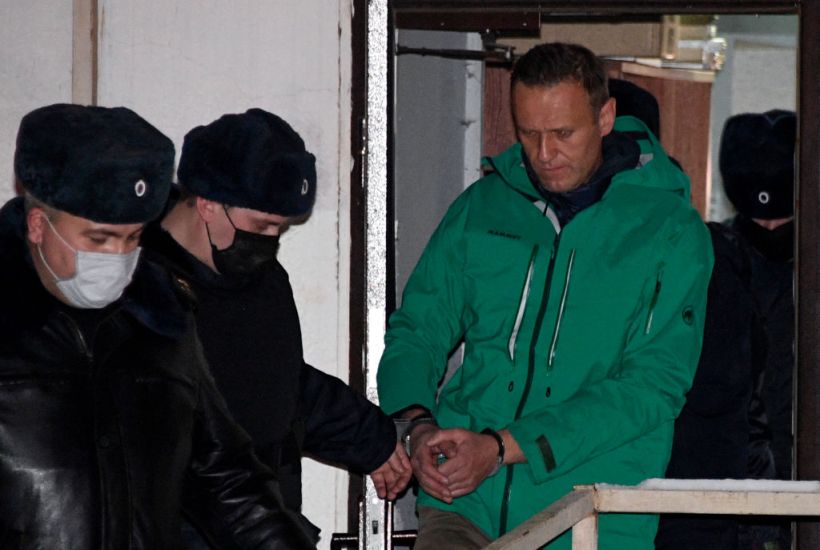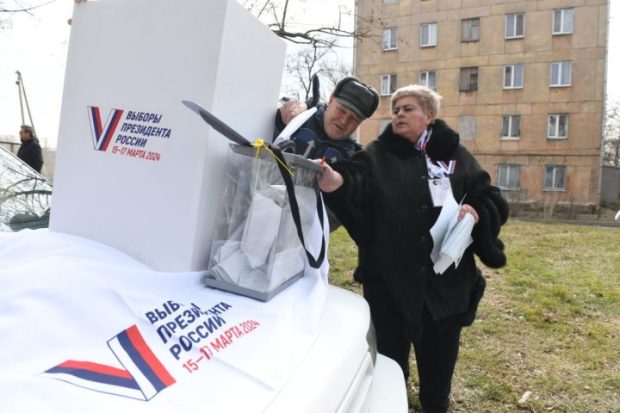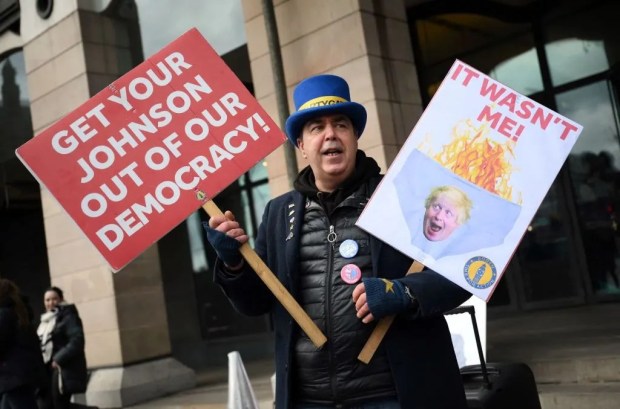For years, Alexei Navalny had been – barely – tolerated by a Kremlin that was willing to permit very limited opposition and criticism. When security officers tried to poison him last year, it reflected a distinct swing towards more ruthless authoritarianism. Back in Russia, and back in prison, Navalny likewise seems to have taken off the gloves.
Until now, everyone was fair game for Navalny’s investigations into official corruption – except for Vladimir Putin and his family. Yesterday, after Navalny had been sent to Moscow’s notorious Matrosskaya Tishina prison until his next trial date in February, his team released their latest investigation. In a characteristically slick and entertaining video, almost two hours long, the corrupt schemes which allowed Putin to build himself ‘the most expensive palace in the world’ at Gelendzhik on the Black Sea coast are laid bare.
So too is the extravagance of the palace, a place of such monumentally bad taste that one could imagine even Donald Trump feeling it goes a little too far. A place with a room to keep a toy car collection, and a Bond villain-style tunnel to the beach. And the beneficiary of this ‘biggest bribe in history’, Putin, is described as a ‘madman’ willing to let his country burn in the name of his own enrichment.
These are fighting words. But when Navalny flew home, knowing that he faced arrest as soon as he landed, he was making a high-stakes gamble. His challenge is that while he is personally charismatic and his anti-corruption message has resonance throughout the country – over a third of Russians consider it a key problem – he has had trouble moving beyond his natural support base of the young, the urban, the online.
By delivering himself into the state’s hands, he was gambling first that, having been exposed trying to murder him once, it would not find a way to kill him again, and secondly that this gesture could give him a wider moral authority.
Meanwhile, he is calling on his supporters to come out onto the streets, even though the authorities look unlikely to issue them permits, raising the prospect of clashes with the police and the fearsome National Guard.
Outside the country, his ally Vladimir Ashurkov has issued the top eight names of a list of Russians Navalny wants sanctioned, a mix of oligarchs, officials and a propagandist, as a challenge to Western countries to put some muscle behind their words of concern and indignation.
Navalny is presumably banking on one of three things: momentum, legitimacy or over-reaction.
Between coronavirus and state pressure, demonstrations are unlikely to become the kind of truly massive street protests of 2011-13, but they do make people feel part of something greater. If Navalny’s supporters can maintain them over time, even through such innovative means as flash mobs and single-person pickets, then they help solidify a movement that still lacks a centre beyond Navalny himself.
The second and most intangible potential gain is legitimacy through moral example. By coming back to Russia and putting himself in harm’s way, rather than opining on Russia’s needs from a safe and cosy berth abroad, Navalny has demonstrated courage and commitment. Whether he is locked away for weeks, months, or years, there will be a narrative struggle, as the state tries to erase him from public consciousness or characterise him as a fraud, a fool, or a Western pawn, while his supporters present him as a moral dissident, a modern-day Andrei Sakharov.
Of course, the state may have all the cards – the security forces, TV, tame courts – but it often plays its hand strikingly badly. If it over-reacts, not least in suppressing peaceful protest, it may make Navalny’s case for him.
After all, he is playing a long game. Although he is doing what he can to undermine the state’s United Russia bloc in September’s parliamentary elections, Navalny does not expect to be standing against Putin. The 44-year-old is looking to a Russia after the 68-year-old incumbent no longer calls the shots. If he survives that long.
Got something to add? Join the discussion and comment below.
Get 10 issues for just $10
Subscribe to The Spectator Australia today for the next 10 magazine issues, plus full online access, for just $10.




















Comments
Don't miss out
Join the conversation with other Spectator Australia readers. Subscribe to leave a comment.
SUBSCRIBEAlready a subscriber? Log in